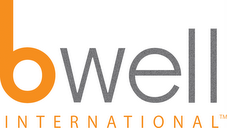Just when it feels like the healthcare debate is just beginning to heat up, Michael Moore’s ‘Sicko’ adds fuel to the fire by speaking to a general population that more and more is concerned with the rising cost of medical expenses and health insurance in America. When area Americans going to be concerned about the health status they possess, which drives costs?
Moore’s film explores the downfalls of the American for-profit healthcare system and speaks volumes about the emotional and often tragic consequences that go along what that system. His interviews with the families and victims of tragedies due to inability to pay for medical expenses or the denial of insurance coverage are touching, saddening and ultimately frustrating.
Moore also shows the so-called perfection of healthcare systems in countries that offer universal coverage for their citizens. What he fails to show, however, are the downfalls that can come with this type of universal coverage.
While there is no doubt that something needs to be done about the healthcare system in our country, Moore’s suggestion that a universal healthcare system, like they have in the UK or Canada, would solve all our problems is short-sighted and altogether misinformed. He fails to address the problems that are present in these systems such as long waiting periods for care, the inability to choose your physician and the high taxes associated with having “free” healthcare. He also ignores the fact that in some countries where universal coverage is available, people choose not to use it. For example, in the UK approximately 12 % of people have chosen private health insurance in lieu of using the National Health System. This points to the fact that even in the “perfection” of universal healthcare, there are still problems.
Moore also does not address the simple fact that the quality of care in the US is often far superior to the quality of care received in other countries. Because of the privatized healthcare system in America, the medical research and development that occurs here far surpasses the development that occurs in other countries. So while there are certainly downfalls in the way the American system treats healthcare there are also benefits, such as a higher quality of care and higher rate of development.
While it would be hard to disagree with the idea that everyone deserves access to quality medical care, moving to a universal healthcare system in the United States would not be as perfect as Moore would like us to think. His utopian presentation of a world in which prescription drugs are cheap, doctors visits are free and overall care is up to US standards is enticing, although not quite realistic. I support a universal coverage system in America, where those who want to improve their basic benefit package can buy supplemental health insurance on the free open market, just like they would be able to do for the basic coverage package.
If Moore’s goal was to get the attention of the public he certainly succeeded. If his goal, however, was to accurately portray the downfalls of the US healthcare system and suggest a realistic alternative, he failed miserably. But, Moore’s polarized and oversimplified view has gotten peoples’ attention. As the old adage goes, ‘there is no such thing as bad publicity.’ Publicity for the healthcare debate, in this case. If ‘Sicko’ has done only one thing it has been to raise awareness and fuel the debate about the problems within the healthcare system, which can only be the first step toward any real change.
